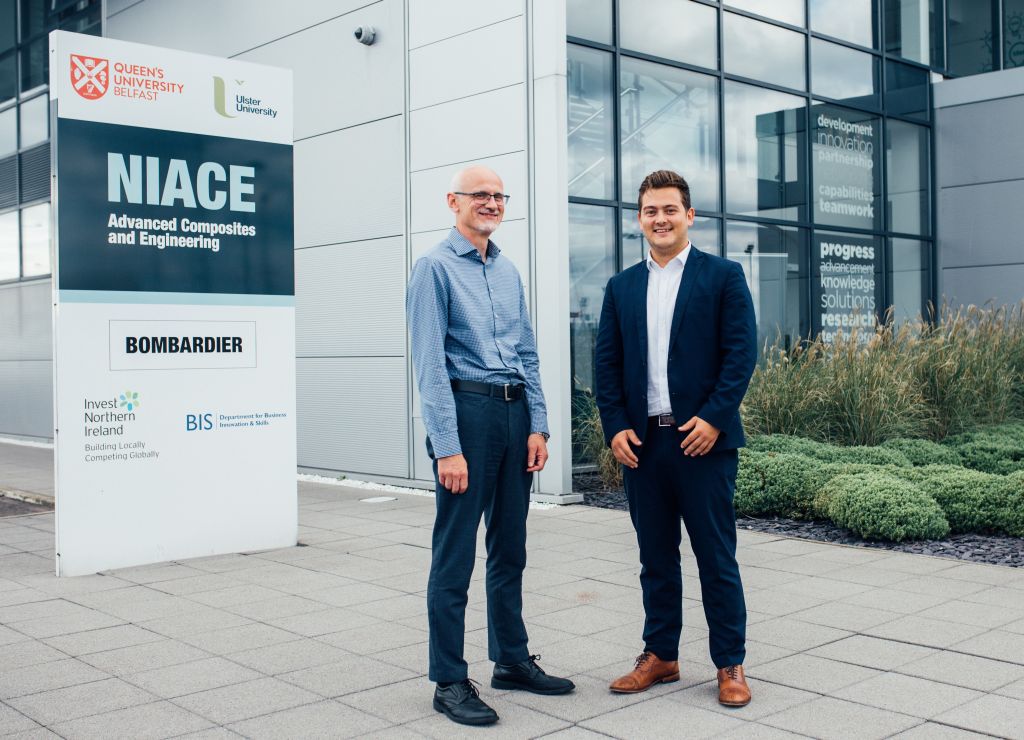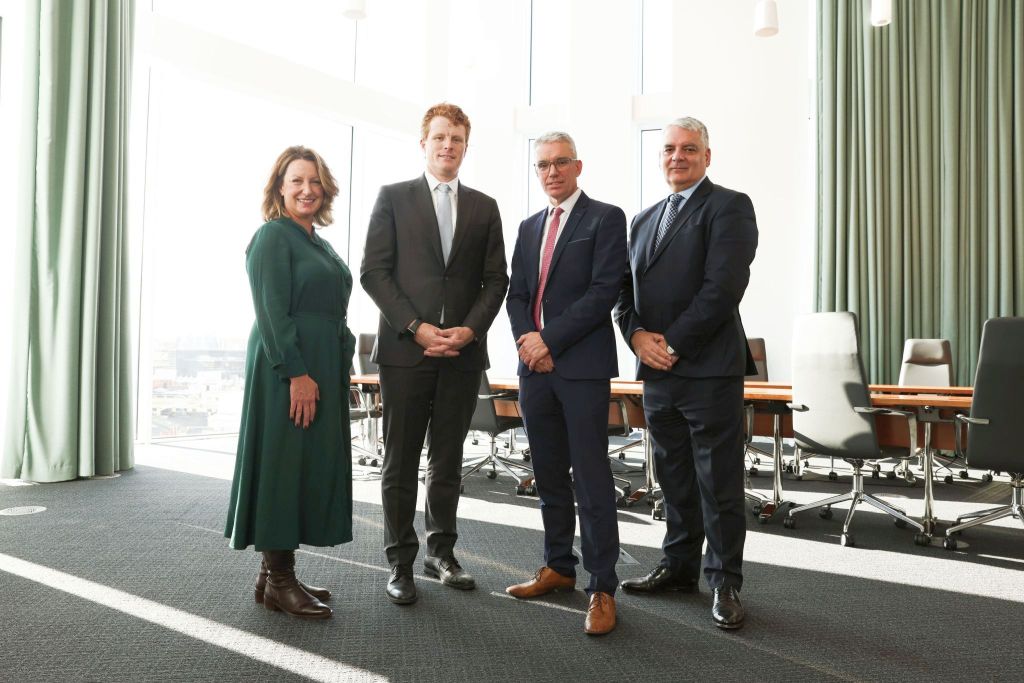Focused on innovation

With a focus on innovation, Denroy says it leads the way in 'metal to plastic' conversion. Aerospace Manufacturing caught up with the engineered polymer components and solutions specialists to hear more.
As one of the world's leading innovators in the design and manufacture of engineered polymer components and solutions, Denroy specialises in high temperature polymers for metal replacement. This led to the launch of a three-year £3.8 million project in the development of thermoplastics, composite, overmoulded, structural aerospace parts. It resulted in a hybrid composite product with a high stiffness-to-weight ratio, capable of replacing similar parts made from heavier metallic alloys, which contributes towards improved fuel efficiency, range, and performance.
“Denroy has always had a focus on innovation, so we are thrilled to be leading this project at the cutting edge of thermoplastics technology,” states Denroy’s chief commercial officer, Gareth Deering. “With the aerospace industry’s increased focus on sustainability, lightweighting and cost as well as a need for faster methods of manufacturing, we expect to continue to see a significant move to thermoplastics composites by OEMs over the next 5-10 years. Denroy plans to be front and centre in that move as the go-to expert on thermoplastics component manufacture.
“The hybrid moulding technology at the centre of this project is particularly exciting because it combines Denroy’s 50 years of expertise in injection moulding with the company’s capabilities in thermoplastics composites. The material, stress and design work we are doing, and ultimately putting parts made from composite overmoulding to the test in some very harsh test conditions, will enable us to prove out the technology’s viability for critical structural applications.”

The High-Performance Thermoplastics Structural OverMoulding for the Aerospace Industry, ‘SOMA’ project was supported by the ATI programme, a joint Government and industry investment to maintain and grow the UK’s competitive position in civil aerospace design and manufacture.
The technique focused on combining short and long carbon fibre reinforced composites to provide efficient, integrated, structures that take advantage of the complementary strengths of both material types. The project output provides an innovative process supporting the advanced design of more efficient, more sustainable aircraft parts in line with UK aerospace needs.
Composite materials are vital to the aviation industry because they provide structural strength comparable to metallic alloys at a lighter weight, capitalising on their exceptional strength and stiffness-to-density ratios and superior physical properties. This leads to improved fuel efficiency and performance from an aircraft.
Lightweight priorities
Lightweighting is revolutionising aircraft interiors, making it amongst the highest priorities for the aerospace industry. Weight reduction can have enormous effects on the efficiency of an aircraft. A reduction in weight directly results in a reduction in fuel usage, therefore leading to a reduction in costs, economically and environmentally.
In the past, some metals like aluminium have been used in the lightweighting process, but the high porosity of lightweight metals could produce unreliable parts. Composite plastics, however, can be engineered to meet the needs of the environment they will function in, by developing custom-engineered resins to stand up to harsh conditions ranging from saltwater and chemicals to extreme heat and pressure. This keeps all the benefits of lightweighting whilst avoiding the risks of certain metals, such as lead, from public products.
Several metal parts can be redesigned using the freedom of plastic injection tooling to create a single plastics part which again reduces weight and transportation costs.
And finally, labour costs are reduced due to plastics parts often being produced quicker and more efficiently. The use of automation and in-house data collection systems ensures repeatability and efficiency during the moulding process, which helps to control product costs in this price sensitive market.

As an ISO9001 accredited company and currently working towards ISO27001, Denroy has attained several vital industry awards and certifications over the years. A proud holder of ADS’ SC21 Gold Award accreditation for five consecutive years, Denroy can assure that every product must pass exacting quality standards in the production environment to ensure complete customer satisfaction. The company has also secured AS9100. The Cyber Essentials certification also ensures that the company has security measures in place to mitigate the risk of cyber threats.
Denroy takes pride in its unwavering commitment to Environmental Social Governance (ESG) excellence. The company is taking measures to build a long-term sustainable business, which will grow, provide employment, and generate economic benefit in an environmentally and socially responsible way. With the introduction of energy-efficient production machines, installation of PV solar panels and 47% reduction in waste going to landfill, the company is prioritising the importance of optimising resources and minimising the environmental footprint. The introduction of the Sensorfact energy monitoring system allows the company to monitor asset energy usage, identify energy losses and improve start up and shut down procedures to reduce energy usage kw/kg.
It pays to be smart
To keep improving efficiency, Industry 4.0 and Denroy’s use of smart machines and production processes have been integral. The purchasing of Moldex3D has advanced the company’s Computation Fluid Dynamics offering and has increased capabilities to further support customers’ optimal quality. This has been achieved by simulating moulding parameters early in the design stage or during modification which enables the team to find alternative parameters to correct problems prior to setting up the mould machine. The main areas of inspection are filling, packing, cooling, and deformation. This has massively benefited processes and expectations when manufacturing/modifying tooling, or to use as a problem-solving tool to advise on the key points prior to building a tool.
Last year, Denroy also secured the Boeing BAC5321 injection moulding qualification. US special envoy for Northern Ireland, Joe Kennedy said: “I’m very pleased to announce that Denroy has been approved as a supplier to Boeing with a view to providing interior and exterior aircraft parts. Denroy is the only UK company to secure this injection moulding qualification and one of only two in Europe. Denroy’s success is built on a focus on innovation and a willingness to diversify, as well as a commitment to working at the highest level of operational excellence. This latest success for Denroy highlights the opportunities that exist for ambitious Northern Ireland companies in the US market.”
Surrounding the use of Boeing CAD, specification documentation and the flow of information through a company, Denroy provided a walkthrough of the processes in place and supporting documentation, showing a robust system capable of handling any data Boeing provide which successfully fulfilled the D1-4426 Requirements for Special Processes.
There is little doubt that the considerable benefits offered by composites have yet to be fully exploited and as knowledge and understanding grow, composite materials will play an increasingly significant role. This role will expand not only because of improved material performance, but also as human ingenuity finds more diverse areas where composite materials can be beneficially employed and leveraged and that is what makes this all so exciting. Denroy is ready for when this happens.













